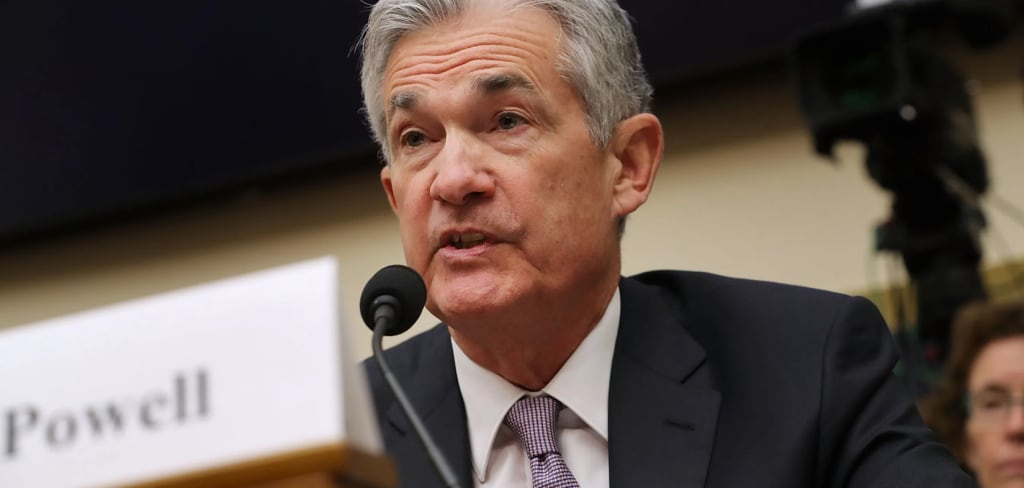
Introduction
Jerome Powell is the current Chairman of the Federal Reserve, the central banking system of the United States. As the leader of this important institution, Powell is responsible for setting monetary policy, which includes decisions regarding interest rates, inflation control, and economic growth. Inflation is a key factor in the Federal Reserve's decision-making process, and investors need to understand Powell's views on inflation to make informed investment decisions. This article will provide an overview of Powell's background, explain what inflation is, explore Powell's views on inflation, and discuss the implications for investors.
Jerome Powell's Background
Jerome Powell was born in February 1953 in Washington D.C. He earned a degree in Politics from Princeton University in 1975 and a law degree from Georgetown University in 1979. After practicing law for a few years, Powell joined the investment bank Dillon, Read & Co. in 1984. He later worked for other investment firms, including the Carlyle Group, before being appointed to the Federal Reserve Board of Governors in 2012. In 2018, President Donald Trump nominated Powell to serve as the Chairman of the Federal Reserve, succeeding Janet Yellen.
Powell is widely viewed as a pragmatist who is not wedded to any particular economic theory or ideology. He is seen as a steady hand who is able to balance competing priorities and make decisions based on the available data. His background in finance and government has prepared him well for the challenges of leading the Federal Reserve, and his approach to monetary policy has been shaped by his experiences in both sectors.
What is Inflation?
Inflation is a measure of the rate at which prices of goods and services increase over time. A moderate level of inflation is generally considered to be healthy for an economy because it encourages spending and investment. However, if inflation becomes too high, it can erode the value of money and make it more difficult for consumers and businesses to plan for the future. In extreme cases, hyperinflation can lead to social unrest and economic collapse.
The Federal Reserve closely monitors inflation and has a target of 2% annual inflation over the long term. The central bank uses a variety of tools to control inflation, including adjusting interest rates, changing the money supply, and setting reserve requirements for banks. The goal is to maintain stable prices while also promoting economic growth and full employment.
Jerome Powell's Views on Inflation
Since taking office as Chairman of the Federal Reserve in 2018, Jerome Powell has made it clear that controlling inflation is a top priority for the central bank. He has repeatedly stated that the Fed is committed to maintaining its 2% inflation target over the long term, even if short-term fluctuations occur. Powell has emphasized the importance of anchoring inflation expectations among consumers and businesses to prevent it from spiraling out of control.
Powell's approach to balancing economic growth with inflation control has been pragmatic and data-driven. He has been cautious about raising interest rates too quickly or aggressively, as doing so could hamper economic growth and job creation. Instead, Powell has advocated for a "patient" approach to monetary policy, allowing the economy to continue to expand while also keeping inflation in check.
During the COVID-19 pandemic, Powell has taken unprecedented steps to support the economy and keep inflation from falling too low. The Fed has cut interest rates to near-zero, purchased large amounts of government bonds and other securities, and provided emergency lending facilities to businesses and financial institutions. Powell has acknowledged that the pandemic has created significant uncertainty and that the Fed will continue to use its tools to support the economy and maintain stable prices.
Overall, Powell's views on inflation can be characterized as moderate and pragmatic, with a focus on maintaining stability while promoting economic growth. His approach to monetary policy is based on data analysis and a commitment to long-term goals, rather than short-term fixes or political considerations.
Implications for Investors
Jerome Powell's views on inflation have significant implications for investors. Changes in monetary policy, such as interest rate adjustments or changes to the money supply, can affect the value of stocks, bonds, and other investments.
Investors should pay attention to Powell's statements and actions regarding inflation to make informed investment decisions. For example, if the Fed signals that it is becoming more hawkish on inflation, with a plan to raise interest rates to combat rising prices, stocks and bonds may be negatively affected. Conversely, if the Fed signals a more dovish approach to inflation, with a focus on supporting economic growth, investments may perform better.
In general, investors should consider their investment objectives, risk tolerance, and time horizon when making decisions based on Powell's views on inflation. Stocks and other growth-oriented investments may perform well in a low-inflation environment, while bonds and other fixed-income investments may perform better in a high-inflation environment. However, it is important to remember that market conditions and other factors can also impact investment performance.
Investors can also use Powell's statements and actions as a gauge of the overall health of the economy. If Powell is optimistic about economic growth and job creation, this may be a good sign for the broader economy and markets. Conversely, if Powell expresses concern about economic conditions or inflation, this may signal potential challenges ahead.
Overall, investors should pay attention to Jerome Powell's views on inflation and use them as a tool to make informed investment decisions. However, it is important to remember that no single factor should be the sole determinant of investment decisions, and that a diversified portfolio is key to managing risk and achieving long-term financial goals.
Conclusion
In conclusion, Jerome Powell's views on inflation are a critical factor for investors to consider when making investment decisions. As the leader of the Federal Reserve, Powell is responsible for setting monetary policy that can have a significant impact on the economy and financial markets. Powell's pragmatic approach to balancing economic growth with inflation control has been informed by his experience in finance and government. He has emphasized the importance of maintaining stable prices and anchoring inflation expectations among consumers and businesses.
Investors should pay attention to Powell's statements and actions regarding inflation to make informed investment decisions. Changes in monetary policy can affect the value of stocks, bonds, and other investments. Investors should consider their investment objectives, risk tolerance, and time horizon when making decisions based on Powell's views on inflation. In general, stocks and other growth-oriented investments may perform well in a low-inflation environment, while bonds and other fixed-income investments may perform better in a high-inflation environment. However, it is important to remember that market conditions and other factors can also impact investment performance. By paying attention to Powell's views on inflation, investors can make informed decisions that help them achieve their long-term financial goals.
About the Creator
Samuel
I write about Science/Tech/Business & Anything that can give value to people ❤️
I'm on YouTube too guys feel free to check out my channel here: www.youtube.com/@sambladeco






Comments
There are no comments for this story
Be the first to respond and start the conversation.